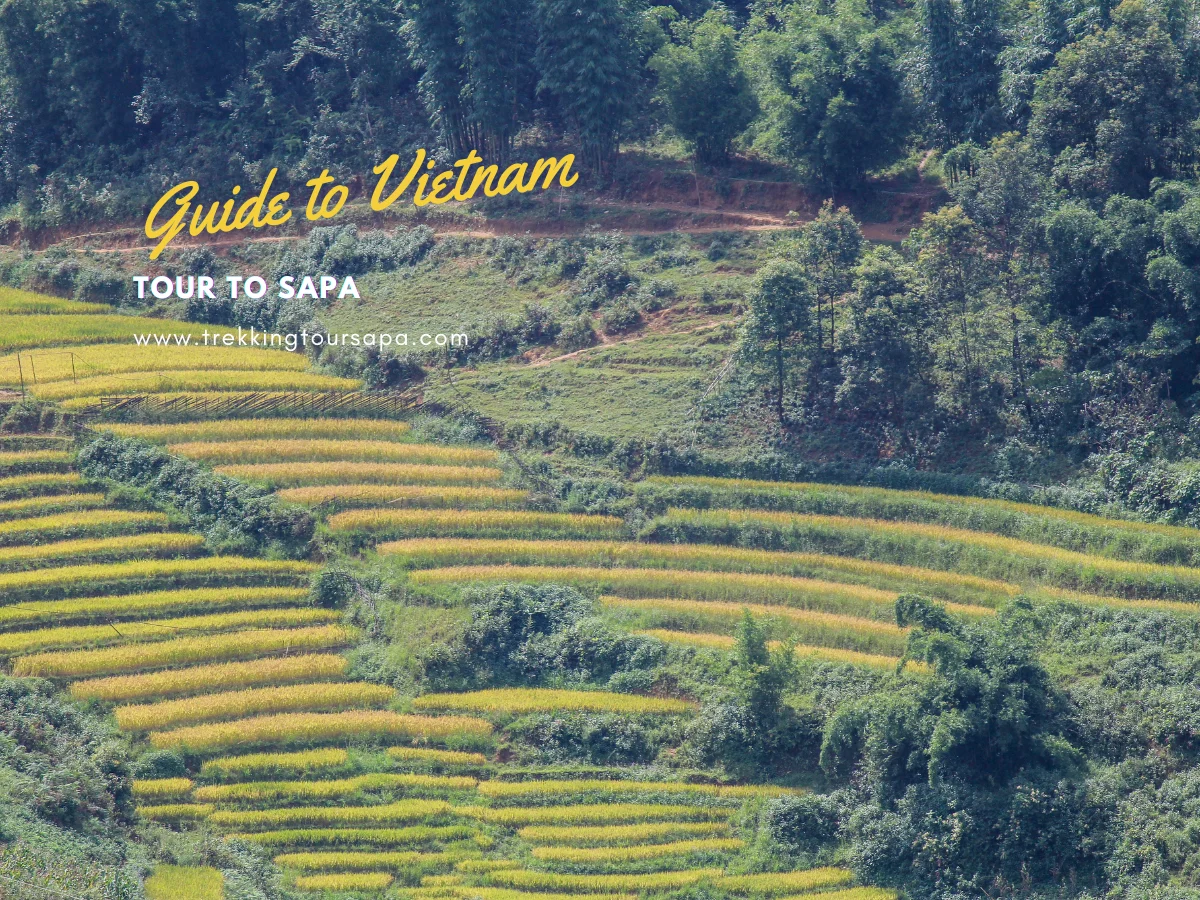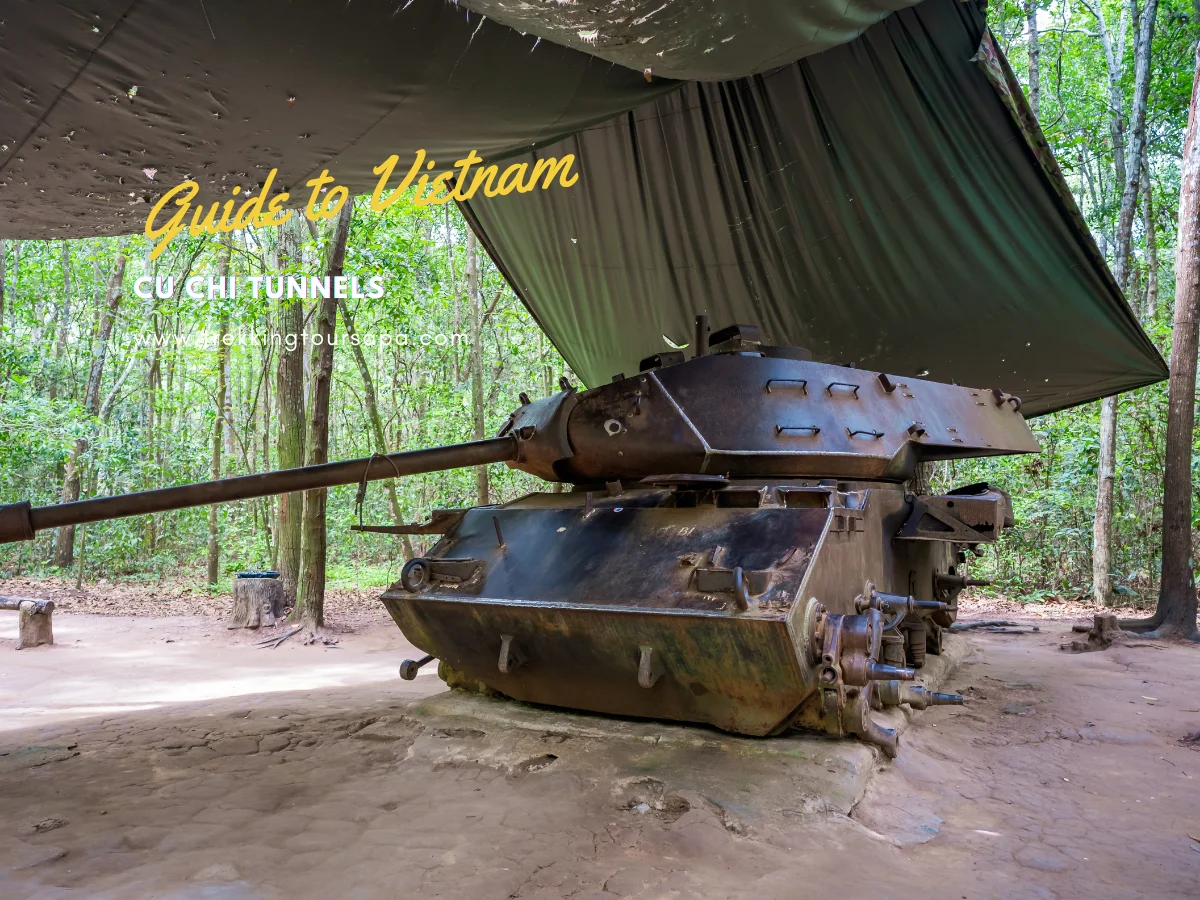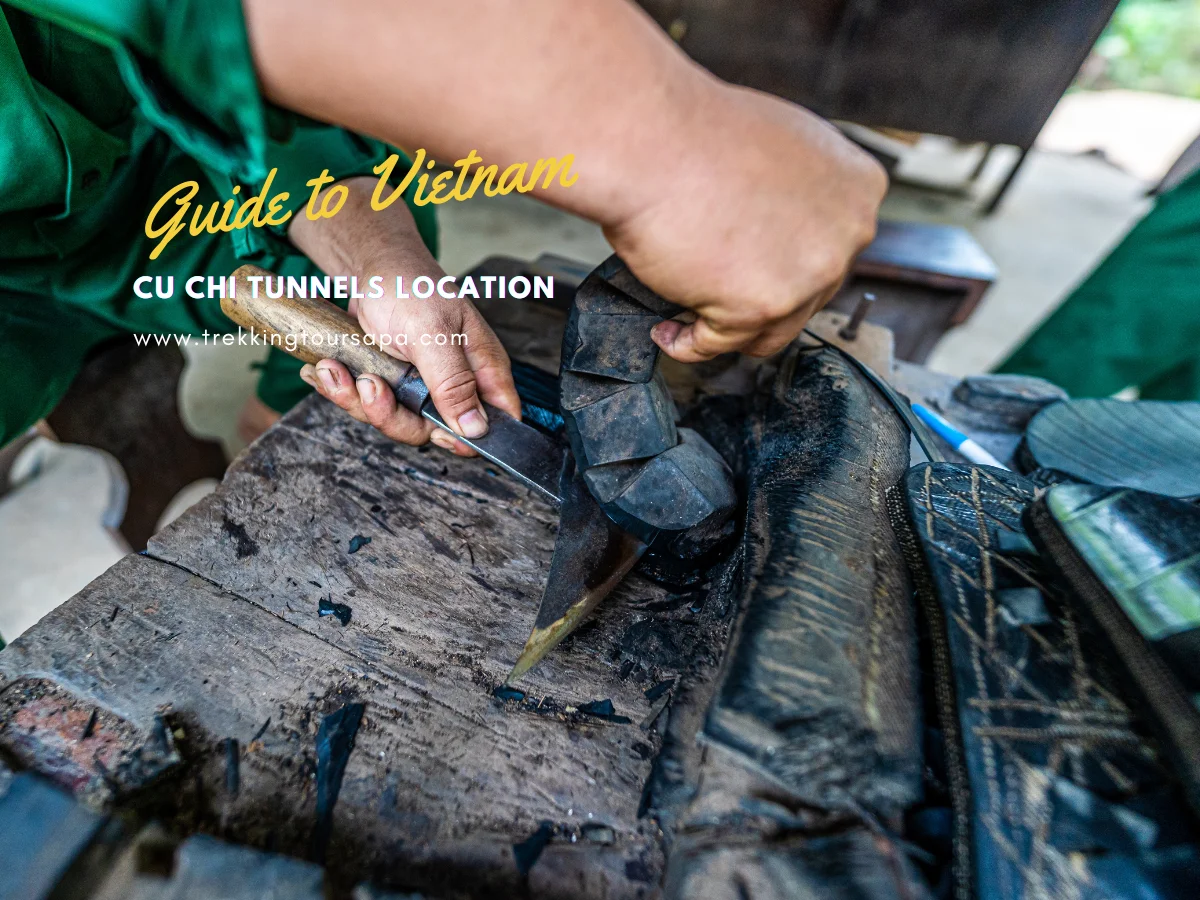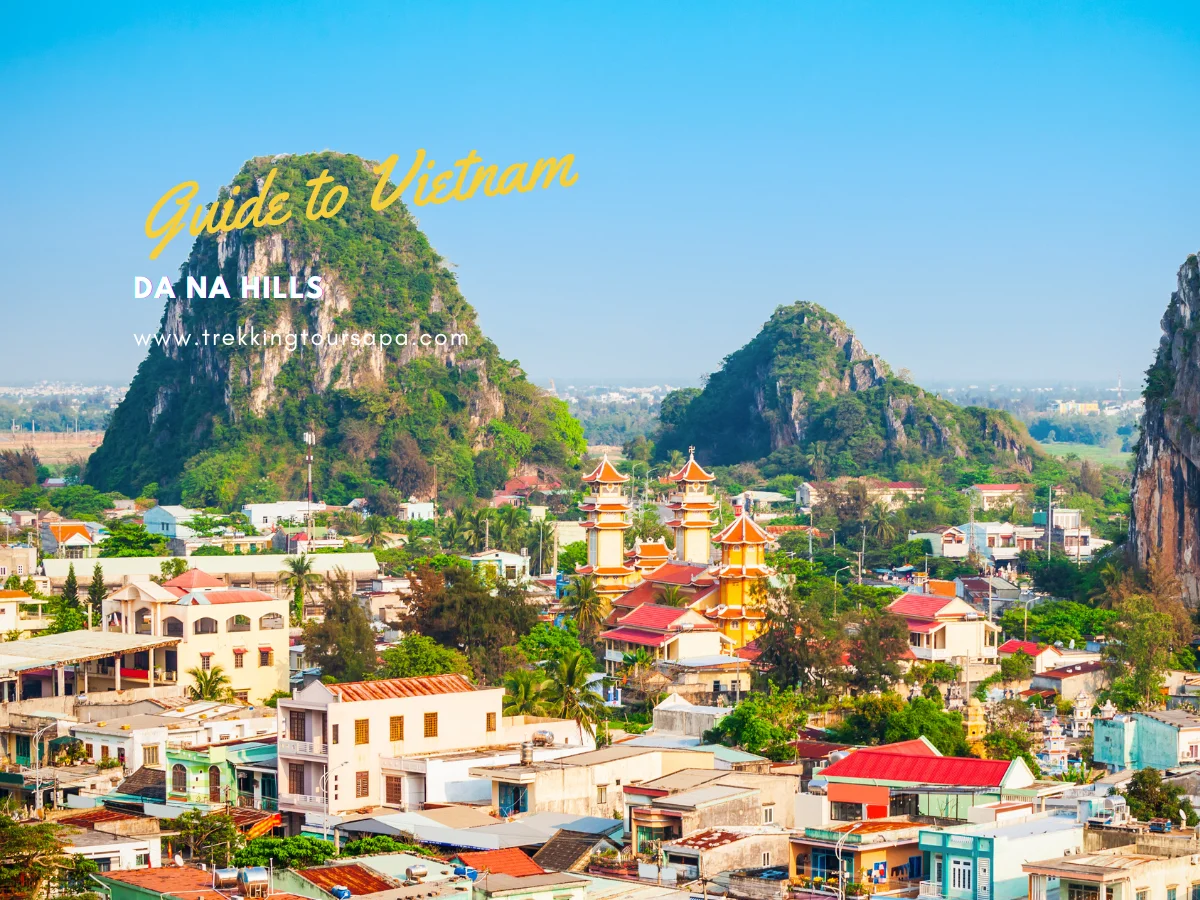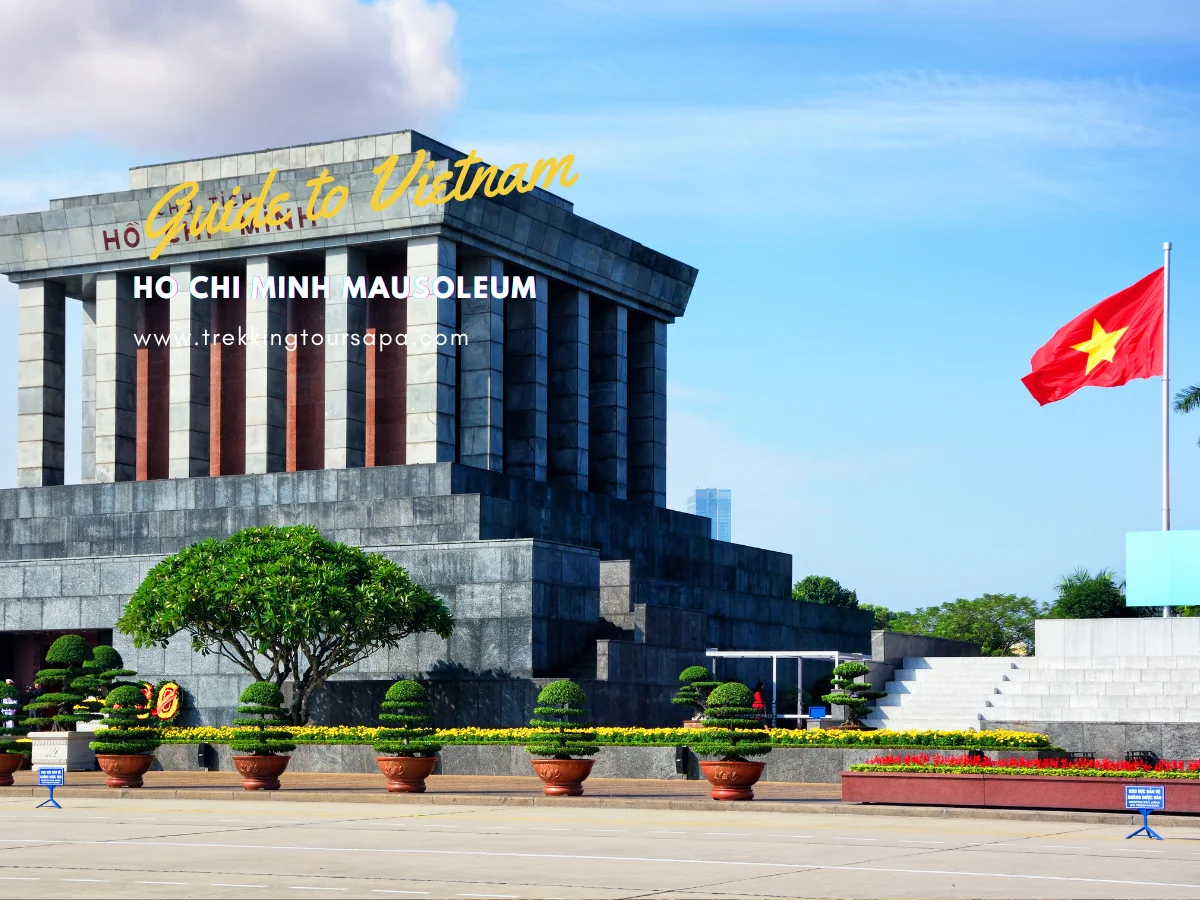Sapa is a unique place in Northern Vietnam’s highlands. It offers stunning views and a rich cultural mix. Our Sapa tour is packed with exciting activities and cultural experiences. Whether you’re into adventure or local traditions, our Vietnam Sapa tour packages have it all.
In Sapa, you can see beautiful rice fields and meet local communities. You can also try unique foods from the area. Our tours last from 48 hours to five days, so there’s something for everyone. Let’s discover Sapa’s hidden treasures, essential tips, and amazing sights together.
Tour to Sapa Key Takeaways
- Sapa is about 300 kilometers from Hanoi, easily accessible via the Noi Bai – Lao Cai expressway.
- The town is home to diverse ethnic minorities, enriching its cultural fabric.
- Prime visiting seasons span from September to November for cool weather and golden fields.
- Local specialties like salmon and sturgeon enhance the culinary experience in Sapa.
- Must-see attractions include Fansipan Mountain, the highest peak in Indochina.
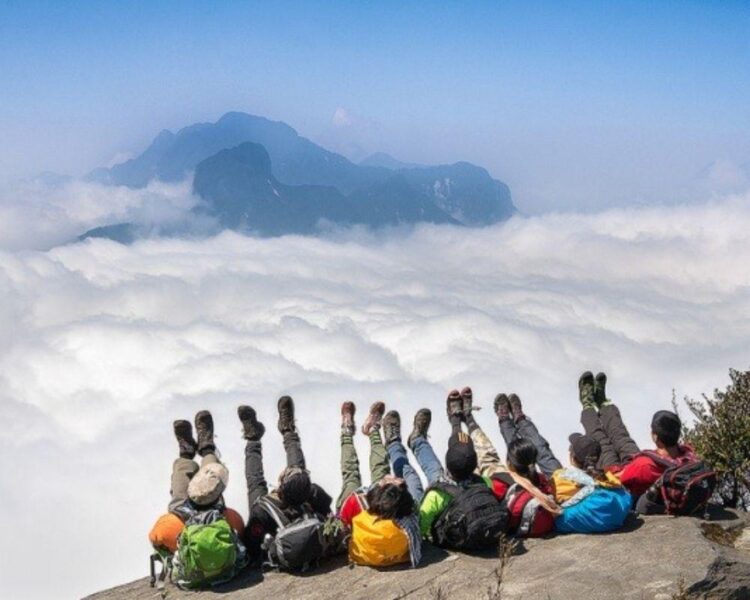
Table of Contents
ToggleOverview of Sapa
Sapa is a gem in the Hoàng Liên Son mountains. It’s a place of natural beauty and rich culture. This town is perfect for those who love adventure, offering stunning landscapes for hiking and trekking.
Here, you’ll find lush rice terraces and vibrant cultures. Sapa is a mix of nature and human heritage. It’s a unique experience.
The area is home to diverse ethnic groups like the H’mong and Dao. These communities add to Sapa’s cultural richness. In our guide, we’ll learn about their traditions and enjoy their hospitality.
Sapa offers many trekking paths for all skill levels. Whether you’re a pro or a beginner, there’s a trail for you. The scenery and wildlife make Sapa hiking even more special.
- Landscapes: Towering mountains, cascading rice fields, and picturesque valleys.
- Cultural Experiences: Interactions with local ethnic communities during trekking tours.
- Events: Regular local festivals celebrating traditional customs and crafts.
Sapa is a gateway to nature and culture. Every step reveals something amazing. From breathtaking views to warm local interactions, Sapa offers an unforgettable journey.

Geography and Location
Sapa is a beautiful place in Lào Cai Province, about 350 kilometers northwest of Hanoi. It’s nestled in the Hoàng Liên Son Mountain Range. This makes Sapa’s geography a mix of high elevations and stunning views.
At around 1,500 meters high, visitors can see amazing views of mountains and terraced rice fields. These fields are a key part of Sapa’s landscape.
Where Is Sapa Located?
The Sapa location is special, right at the border with China to the north. This location offers a perfect setting for trekking and exploring. It also highlights the area’s agricultural importance.
Local ethnic groups add to Sapa’s rich culture. This makes every trip here unforgettable, especially on the best Sapa tours.
Elevations and Views
Sapa is famous for its high spots, like Fansipan Mountain, the highest peak at 3,143 meters. The views from these places draw in nature lovers. Places like Silver Waterfall and Love Waterfall offer cool mist and beautiful scenery.
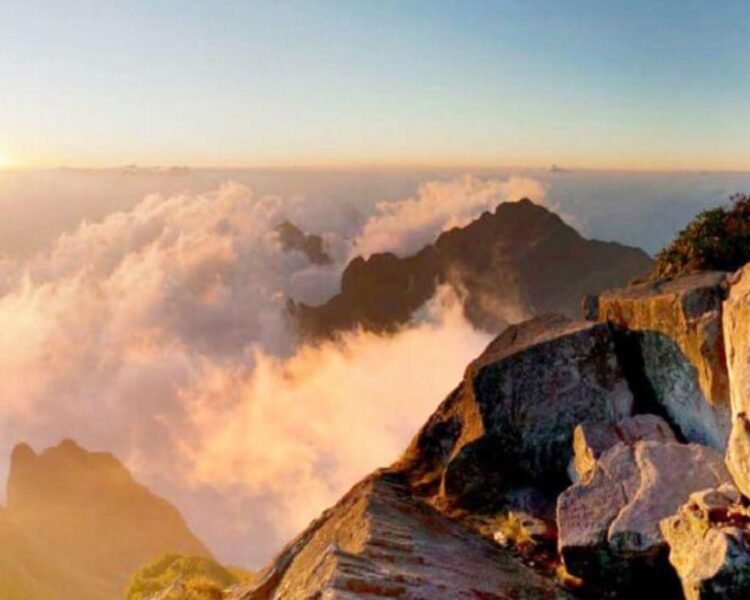
The geography of Sapa is perfect for outdoor fans. It’s full of forests and unique wildlife. Here’s a quick look at some key features:
| Feature | Description |
|---|---|
| Location | Approximately 350 km NW of Hanoi in Lào Cai Province |
| Elevation | About 1,500 meters above sea level |
| Highest Peak | Fansipan at 3,143 meters |
| Nearby Waterfalls | Silver Waterfall (Thác Bạc) and Love Waterfall (Thác Tình Yêu) |
| Key Activities | Trekking, hiking, and local cultural experiences |
Weather and Best Time to Visit
Sapa’s weather is key to planning our trip to this stunning area. Knowing the climate helps us pick the perfect time to visit. This makes our trekking in Sapa Vietnam both fun and unforgettable.
Understanding Sapa’s Climate
Sapa has a temperate climate with clear seasons. Spring, from March to May, is great for trekking with temperatures between 10°C and 20°C. Autumn, from September to November, is also good with temperatures from 15°C to 20°C. This season is perfect for photos with its golden rice terraces.
Ideal Seasons for a Visit

The best times to visit Sapa are March to May and September to November. These periods offer mild weather and lower prices. Summer, from June to August, brings lush green landscapes but higher humidity and prices. Winter, from December to February, is colder but offers a unique snowy view.
| Season | Temperature Range (°C) | Activities | Notes |
|---|---|---|---|
| Spring (March to May) | 10 – 20 | Trekking, exploring | Ideal for outdoor activities |
| Summer (June to August) | 15 – 25 | Culture, waterfalls | Higher prices and tourist numbers |
| Autumn (September to November) | 15 – 20 | Photography, sightseeing | Stunning rice terrace views |
| Winter (December to February) | 0 – 10 | Snow viewing, quiet retreat | Lower prices but colder weather |
Cultural Diversity
In Sapa, we find a rich mix of cultures. The area has a long history, with many ethnic groups living here. The H’mong, Dao, Tay, and Giay each add their own special touch to the place.
Ethnic Minorities in Sapa
The ethnic groups in Sapa keep their traditions alive. The Sapa Culture Museum showcases their customs. It was started in 2007 with help from France and Lao Cai province.
It has over 200 valuable items. Models show wedding rituals and important sacrifices. Visiting here lets us see the area’s rich culture.
Unique Traditions and Customs
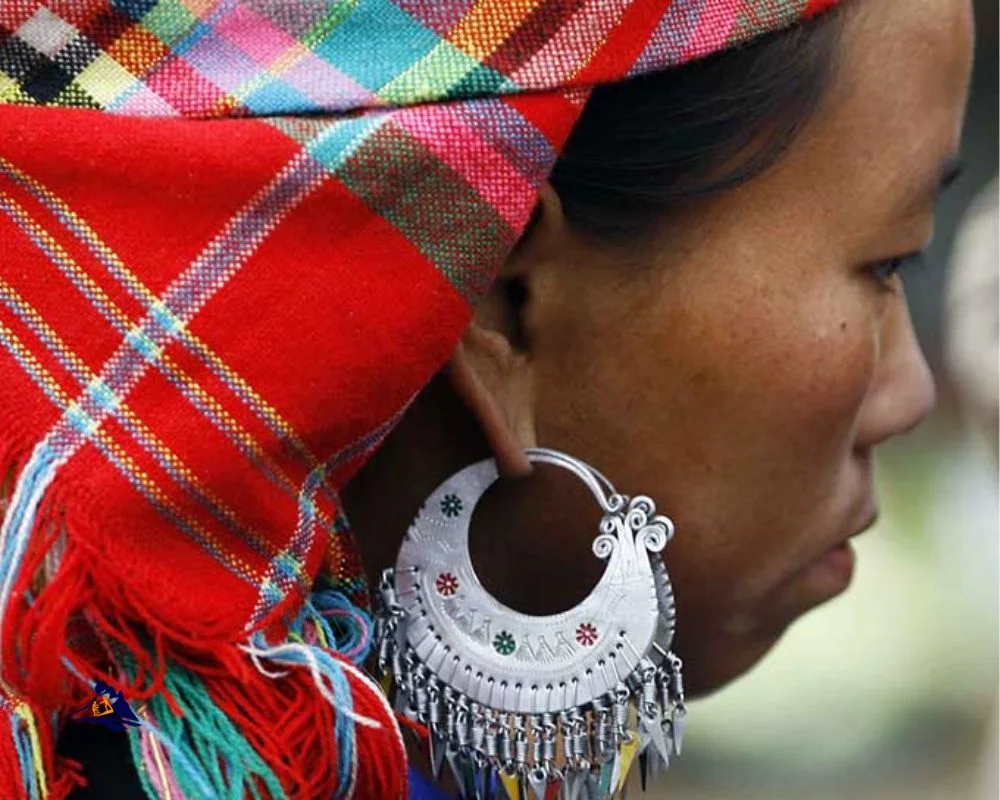
Trying on traditional clothes is a great way to experience Sapa. It lets us connect with the local communities. We learn about their daily lives, crafts, and food.
The markets are full of life. Bartering there creates a friendly atmosphere. Each tradition we see makes Sapa more special.
There’s so much to see in Sapa. We should spend enough time exploring. Festivals, markets, and traditions all add to our adventure.
If you want to learn more, check out our Sapa Vietnam Tour package.
Getting to Sapa
Getting to Sapa is easy with many transportation options from Hanoi. We can travel by train, bus, or private vehicle. Each way offers scenic views along the journey.
Many choose an overnight train to Lào Cai, which takes 8 to 9 hours. It costs between $7 to $46 per person. Then, a short drive to Sapa awaits, with stunning views.
For a quicker trip, a sleeper bus is a good option. It takes 5.5 to 6 hours and costs $12 to $18. Buses offer night travel, arriving as early as 4 am.

Hiring a private vehicle is another choice. It takes 4.5 to 5 hours and costs $160 to $200 per day. Renting a motorbike for $15 per day is adventurous, but takes longer.
Staying with local families through homestays is a great way to experience Sapa. It costs around $8 per night. This supports local families and avoids tour company exploitation.
| Mode of Transport | Duration | Cost (USD) |
|---|---|---|
| Train | 8 to 9 hours | $7 to $46 |
| Bus | 5.5 to 6 hours | $12 to $18 |
| Private Vehicle | 4.5 to 5 hours | $160 to $200 |
| Motorbike | 7 to 8 hours | $15 |
Tour to Sapa: Best Routes from Hanoi
Planning a Sapa tour from Hanoi opens up exciting travel options. Each route offers unique benefits. You can choose between Sapa train travel or a Sapa bus journey. Both promise an adventure into Vietnam’s stunning highlands.
Traveling by Train

Choosing the Sapa train travel is a great way to relax. The train from Hanoi to Lào Cai is peaceful and relaxing. It arrives early, so we can start exploring Sapa right away.
Many train operators offer this service. They cater to different budgets and preferences.
Comfortable Bus Options
For a different experience, consider the Sapa bus journey. Many companies offer sleeper buses for comfort and convenience. We can relax in spacious seating and enjoy amenities along the way.
This option is also budget-friendly for families and groups. It’s perfect for exploring this enchanting region.
Sapa Transportation Options
Exploring Sapa is a joy once we get there. The local transport in Sapa has many options. This makes it easy to see the sights and find hidden spots. We can walk, rent bikes, or use motorbikes to get around.
Getting Around Sapa Town

Walking in Sapa Town lets us enjoy the lively atmosphere and beautiful views. Renting bikes is another great way to move around, costing VND 120,000 to VND 200,000 a day. Motorbikes are perfect for exploring villages or reaching stunning viewpoints.
Using motorbikes makes our trip more exciting. It also lets us travel at our own speed.
Local Transport Services
For trips outside the town, local transport services are ready to help. Taxis and shuttle buses can take us to nearby places. The ride from Sapa Town to Lao Cai City is about 33 kilometers.
Taxis are great for short trips. Sleeper buses and coaches from other cities are good for longer journeys. A sleeper bus from Hanoi costs around VND 500,000 and takes 5-6 hours. For more details, check out local travel resources.
Accommodation in Sapa
Exploring Sapa’s highlands is better with the right place to stay. The area has many choices for all budgets and tastes. From cozy homestays to fancy hotels, there’s something for everyone.
Types of Lodgings Available
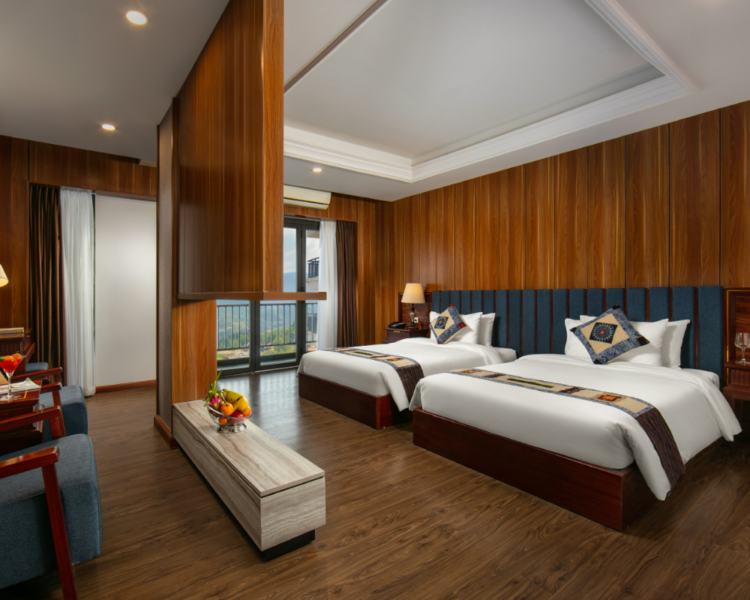
Sapa has a wide range of places to stay. Here’s a quick look:
- Budget Hotels: These are affordable and comfy, great for those watching their spending.
- Mid-Range Hotels: They offer good value with basic amenities and a friendly vibe.
- Luxury Hotels: For a fancy stay, Sapa hotels have top-notch services and amenities.
- Hostels: Perfect for families, groups, and solo travelers who like meeting others.
- Homestays in Sapa: These offer a deep dive into local culture, food, and hospitality.
- Resorts: They focus on the environment, with beautiful views and shuttle services.
Staying in Homestays
Homestays in Sapa let us truly connect with local families. They offer simple but cozy rooms and a chance to see traditional Vietnamese life. We can join in daily activities and try local dishes made with fresh ingredients.
Enjoying stunning views and learning about local customs makes our trip unforgettable. Homestays help us make lasting memories in Sapa, whether it’s meeting ethnic minorities or learning about local traditions.
Top Sapa Attractions
Exploring Sapa’s best spots lets us see amazing landscapes and meet the local culture. Sapa sightseeing is unforgettable, with stunning views, rich history, and friendly locals.
Fansipan Mountain is a must-see, being Vietnam’s highest peak at over 3,140 meters. Climbing it offers a unique view of Sapa’s beauty.
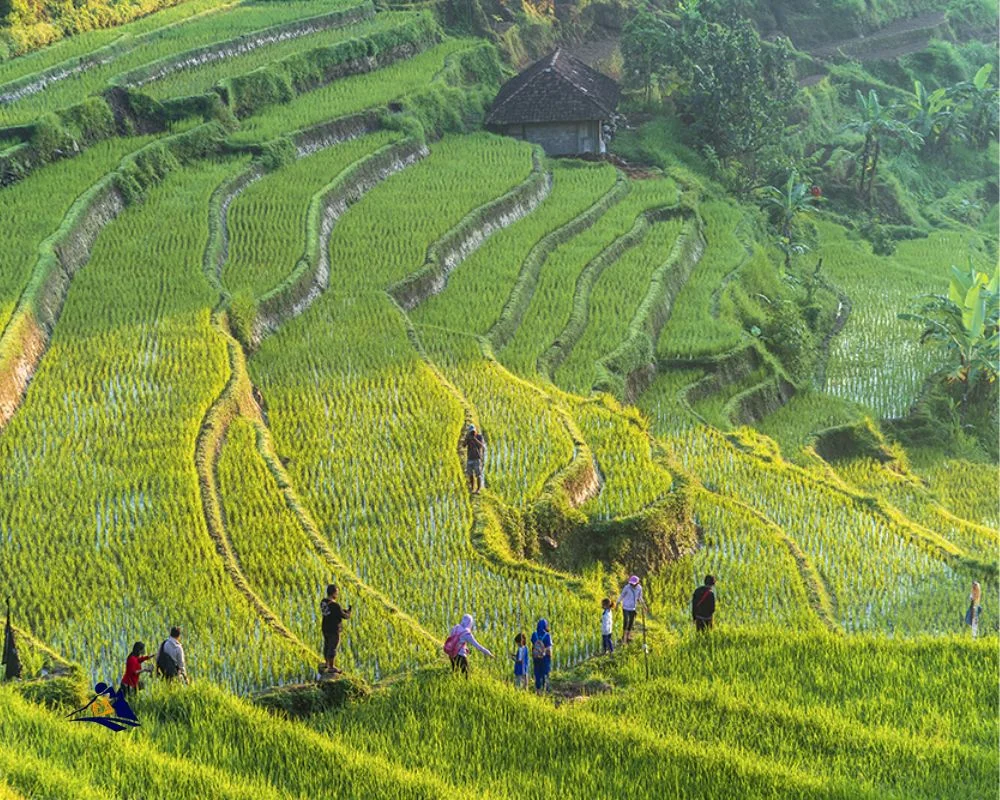
The terraced rice fields in Muong Hoa Valley are breathtaking, especially in harvest season. In spring, the fields turn into a colorful landscape.
The local markets add color to our Sapa highlights experience. Bac Ha Market is the largest, with handmade crafts and local foods. Cat Cat Village gives us a glimpse into Hmong culture, showing Sapa’s rich heritage.
For a calm moment, visit the Love Waterfall and Silver Waterfall. The alpine coaster near Mong Village adds excitement, offering fun views of Sapa.
Every trip to Sapa deepens our love for its beauty and the people’s warm welcome. Sapa offers a mix of adventure and cultural discovery, no matter where we go.
Muong Hoa Valley and Terraced Fields
Muong Hoa Valley is a stunning place, just 8 kilometers from Sapa’s center. It’s known for its amazing rice terraces. Here, we can enjoy trekking and photography amidst rich culture and beautiful landscapes.
Exploring the Rice Terraces
Walking through Muong Hoa Valley, we see the beauty of the rice terraces. In September, the fields turn yellow, creating a breathtaking view. The golden crops and greenery against white clouds are mesmerizing.
Hiking by the Muong Hoa Stream, we find waterfalls and clear ponds. These add to the valley’s beauty. Guided treks let us see the terraces up close, showing us how locals farm.

Cultural Interactions with Local Farmers
Meeting the local communities is a highlight of our visit. We share meals and learn about their farming ways. Tasting dishes like grilled fish and Lam rice, we make unforgettable memories.
The locals’ warm welcome makes every moment special. It deepens our understanding of their lives. For more on Muong Hoa Valley, check out the Muong Hoa Valley guide.
Fansipan Mountain
Fansipan Mountain is the highest in Indochina, at 3,147.3 meters. It’s called the “Roof of Indochina.” It offers stunning views and a unique adventure for those who love nature and adventure. To make the most of this trek, knowing what to expect and how to prepare is important.
Conquering the “Roof of Indochina”
Reaching the top of Fansipan is a big challenge. There are several trails to the summit, each with its own level of difficulty. Beginners might prefer the Tram Ton route, which takes you through beautiful landscapes.
More seasoned trekkers might choose the Sin Chai – Tram Ton trail. For the bravest, there’s the steep Cat Cat Village route. Each path shows off Sapa’s stunning scenery and the local cultures.
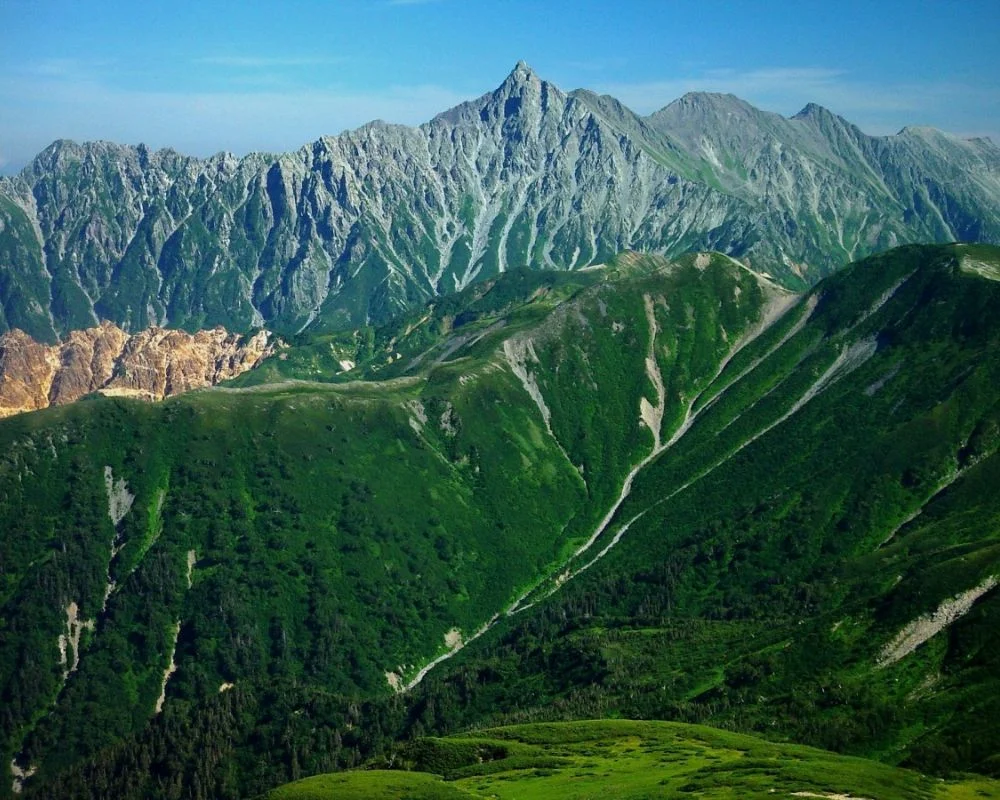
Travel Tips for Trekking Fansipan
When trekking Fansipan, safety and preparation are key. Here are some tips to make your trip unforgettable:
- Pack Versatile Clothing: The weather can change quickly, so wear layers.
- Stay Hydrated: Drink plenty of water to keep your energy up.
- Gear Up Properly: Wear good trekking shoes and use the right gear for the trail.
- Consider Guided Tours: Guided tours can make the trek easier and provide local insights.
- Follow Established Routes: Stay on marked paths for safety and to protect the environment.
The trek to Fansipan’s summit is rewarding. You’ll see amazing views and feel a great sense of achievement. Take on the challenge, respect the nature, and discover the beauty of this special place.
Local Ethnic Villages
Sapa is a treasure trove of cultural gems, with many Sapa ethnic villages. Each village shows its own unique traits, inviting us to explore the rich tapestry of indigenous customs and lifestyles. Joining a H’mong village tour is a rewarding experience, where we delve into the daily lives of local communities.
Traveling through picturesque paths, each stop reveals a different facet of Sapa’s vibrant culture. For instance, in Lao Chai Village, we find a mix of ethnic groups, including the Black Hmong, Giay, and Red Dao people. Homestays offer a cozy place to unwind after a day of adventure, ranging from basic to more comfortable options.
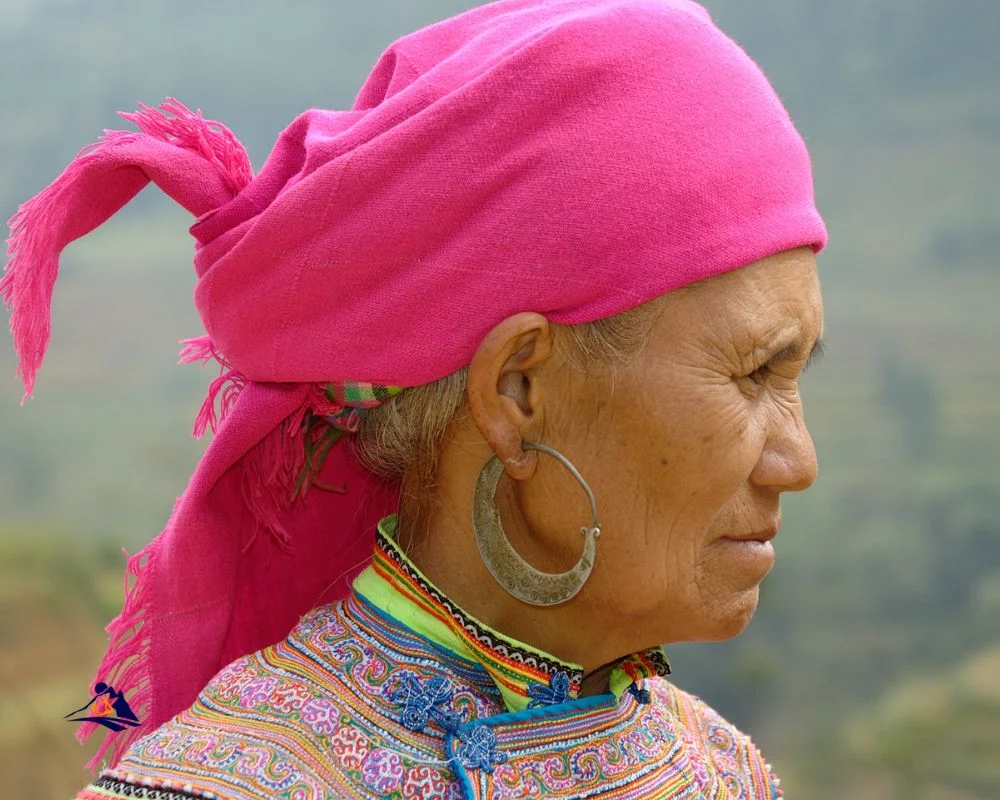
Time spent in these villages is an opportunity for cultural immersion Sapa style. Whether cooking over an open fire with locals or enjoying traditional dinners, these moments create lasting memories. The trekking distance to explore these villages varies, with a typical route covering around 10 km. This blend of captivating scenery and interaction makes our journey truly special.
Here’s a quick overview of entrance fees for some noteworthy villages:
| Village Name | Entrance Fee (VND) | Equivalent (USD) |
|---|---|---|
| Cat Cat Village | 150,000 | $6 |
| Ta Van Village | 75,000 | $3 |
| Lao Chai Village | 75,000 | $3 |
| Ta Phin Village | 40,000 | $1.6 |
| Sin Chai Village | 40,000 | $1.6 |
| Y Linh Ho Village | Free | Free |
| Ban Ho Village | Free | Free |
| Giang Ta Chai Village | Free | Free |
Choosing to experience these Sapa ethnic villages broadens our horizons and enriches our understanding of this remarkable region. Each tour encapsulates the essence of heritage and tradition, allowing us a glimpse into the heart of Sapa’s vibrant communities.
Sapa Markets
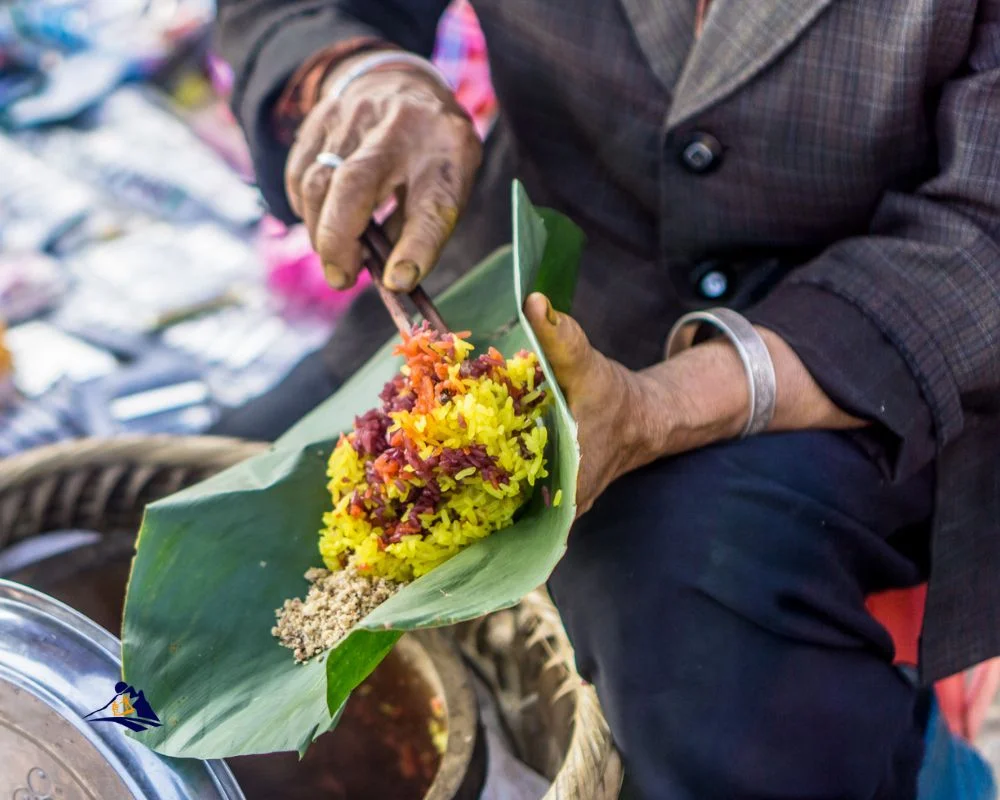
Visiting Sapa’s local markets is a highlight of our trip. The Bac Ha Market Sapa, held every Sunday, is a must-see. It’s about 100 km from Sapa and offers a wide range of handicrafts, textiles, and fresh produce. We get to meet the local ethnic minorities, making our experience truly immersive.
Sunday Bac Ha Market Experience
Walking through the Bac Ha Market is like entering a world of colors and traditions. We search for unique souvenirs that show off local artisans’ skills. The market buzzes with laughter, bargaining, and the smell of food.
It’s best to arrive early to see the most and to catch the market’s peak. Talking to the vendors not only makes shopping better but also lets us learn about their lives and customs.
Local Handicrafts and Souvenirs
Other markets in Sapa, like Can Cau and Sapa Town, also have their own charm. We find amazing handicrafts, from baskets to textiles, each with its own story. These markets are great for finding real souvenirs and meeting locals.
For more tips on family-friendly homestays, check out this guide. It makes our Sapa trip even better.
Sapa 1 Day Tours
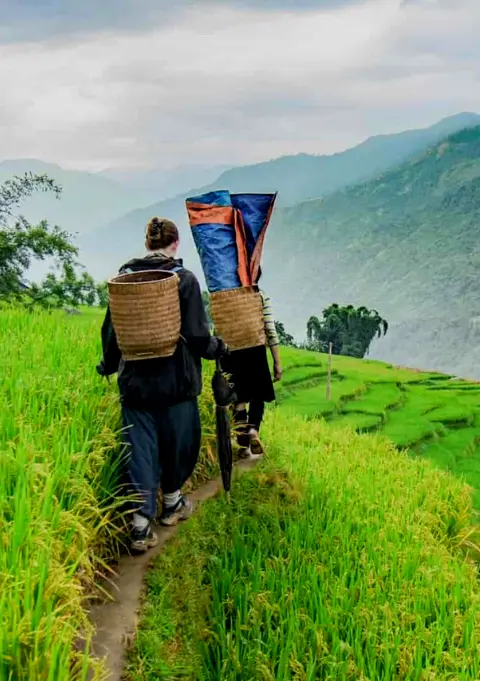
- 1 day experience
- Moderate to challenging
- Cultural immersion & active adventure
- Rice fields, valleys & villages
- Private tours
- Vegan-friendly
Sapa 2 Day Tours
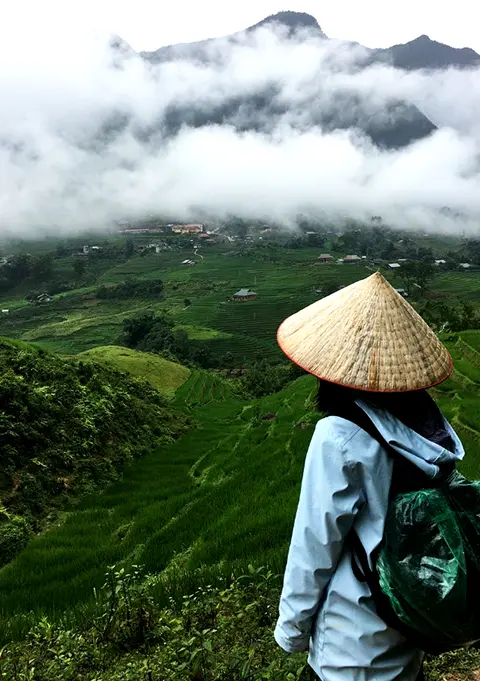
- 2 days 1 night experience
- Moderate to challenging
- Cultural immersion & active adventure
- Mountains, valleys, rice fields and villages
- Private tours
- Vegan-friendly
Sapa 3 Day Tours
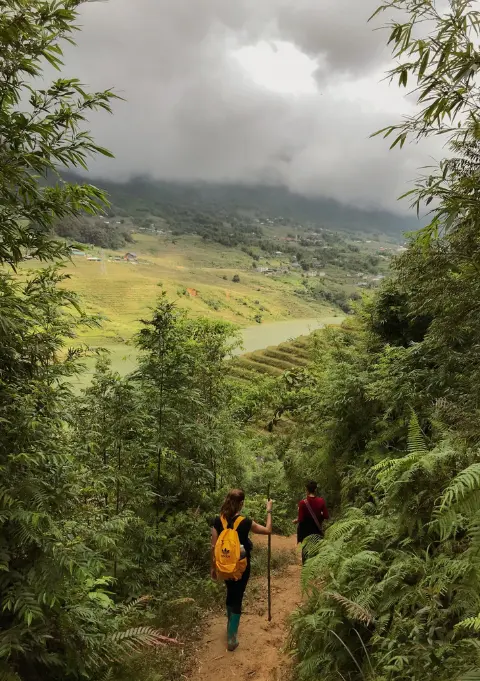
- 3 days 2 night experience
- Moderate to challenging
- Cultural immersion & active adventure
- Mountains, valley, rice fields & villages
- Private tours
- Vegan-friendly
Sapa 4 Day Tours
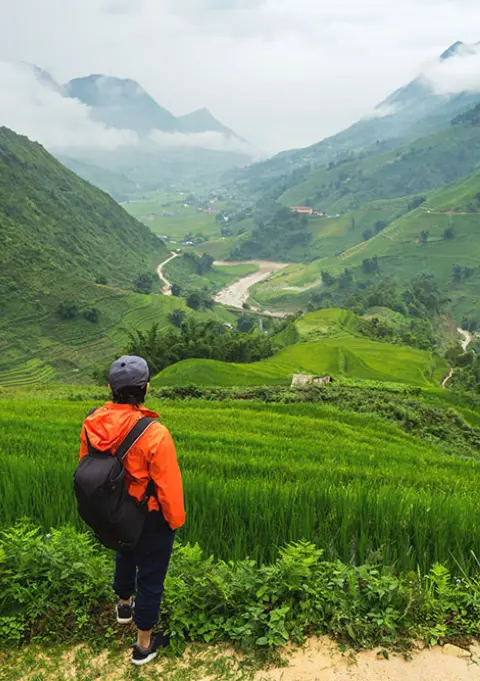
- 4 days 3 night experience
- Moderate to challenging
- Cultural immersion & active adventure
- Mountains, valleys, rice fields & villages
- Private tours – Less Touristic
- Vegan-friendly
